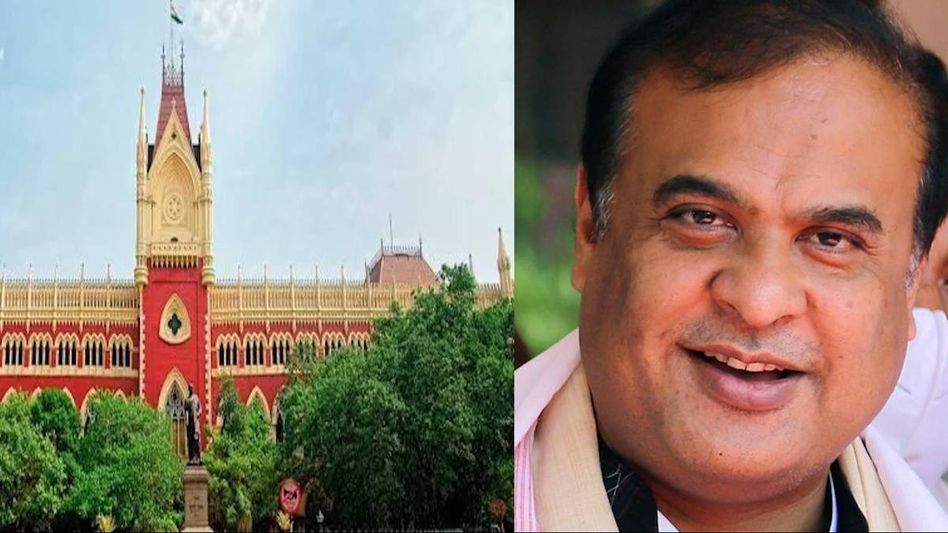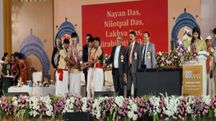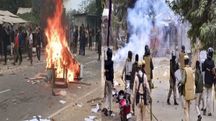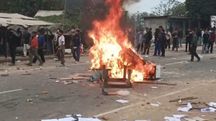Himanta Biswa Sarma: Kolkata High Court's verdict on Muslim reservation a big blow to INDI alliance and Trinamool Congress
Asserting the Bharatiya Janata Party's (BJP) stance against religious-based reservations, Sarma pledged to uphold the secular ideals enshrined in the Indian Constitution.
 Himanta Biswa Sarma: Kolkata High Court's verdict on muslim reservation a big blow to INDI alliance and Trinamool Congress
Himanta Biswa Sarma: Kolkata High Court's verdict on muslim reservation a big blow to INDI alliance and Trinamool CongressAssam Chief Minister Himanta Biswa Sarma on May 23 applauded the Kolkata High Court's ruling which invalidated the Trinamool Congress (TMC) government's Muslim reservation policy. Sarma hailed the judgment stating that the Kolkata High Court's verdict on Muslim reservation is yet another proof of the INDI alliance's insult to the constitution. He labelled the verdict as a significant blow to both the INDI alliance and the Trinamool Congress (TMC).
Expressing his support for the court's decision, Sarma stated the inherent injustice of religious-based reservations saying that they pose a grave threat to the future of marginalized communities such as backward classes, Dalits and tribal populations. He condemned what he perceived as the TMC, Congress and their allies' pursuit of vote bank politics alleging that they seek to govern India based on principles reminiscent of Mohammad Ali Jinnah, the founder of Pakistan.
Asserting the Bharatiya Janata Party's (BJP) stance against religious-based reservations, Sarma pledged to uphold the secular ideals enshrined in the Indian Constitution. He rallied public support, declaring that the people of the nation would deliver a powerful message to these "arrogant parties" in forthcoming elections.
The Kolkata High Court's judgment, delivered on Wednesday, dealt a significant blow to the ruling Trinamool Congress (TMC) in the midst of ongoing general elections. The court scrapped Other Backward Classes (OBCs) certificates awarded to 77 communities since 2010, a majority of them Muslim, calling the classification process illegal.
However, West Bengal Chief Minister Mamata Banerjee expressed her refusal to accept the judgment, while Union Home Minister Amit Shah accused the Bengal government of appeasement. Approximately 500,000 people are expected to be affected by the verdict.
The court's division bench of justices Tapabrata Chakraborty and Rajasekhar Mantha remarked that the selection of 77 classes of Muslims as Backward was an affront to the Muslim community as a whole, suggesting that the community had been treated as a commodity for political ends.
Furthermore, the judgment highlighted concerns that such reservations could leave communities at the mercy of political establishments, potentially undermining democratic principles and the Indian Constitution.
The court's decision also struck down key sections of a 2012 law that subclassified the OBC pool. Of the 77 communities affected, 42 were designated for OBC status by the former Left Front government in 2010, with the remainder added by the TMC government in 2012.
Copyright©2025 Living Media India Limited. For reprint rights: Syndications Today









